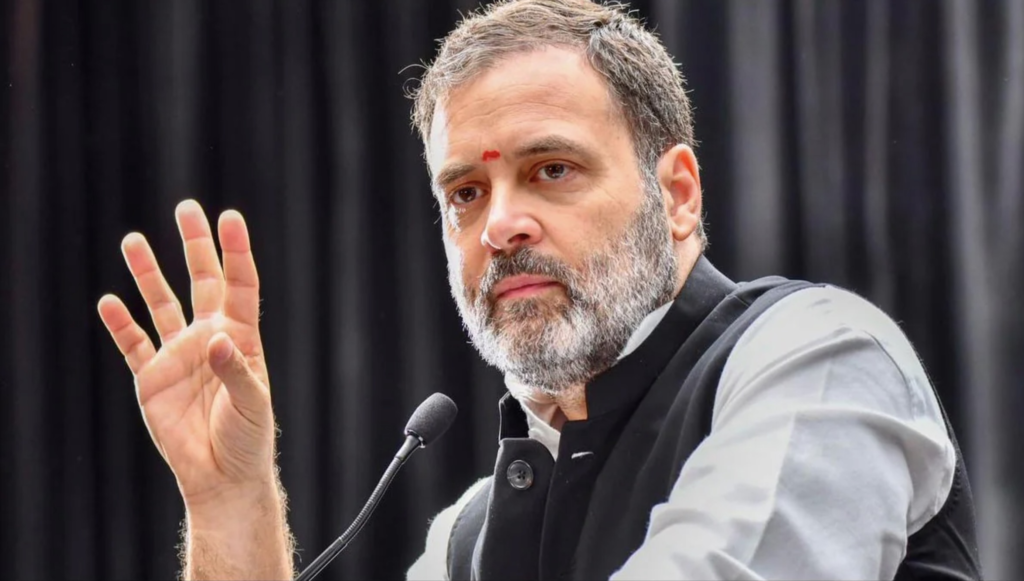Rahul Gandhi, a prominent figure in Indian politics, embodies the complex interplay of legacy, leadership, and resilience. Born on June 19, 1970, in New Delhi, he is the son of former Prime Minister Rajiv Gandhi and the grandson of Indira Gandhi, making him part of one of India’s most storied political families. This lineage comes with its own set of expectations and challenges, shaping his journey in the public eye.

Early Life and Education
Rahul Gandhi’s formative years were spent in the shadow of a powerful political dynasty. Educated at prestigious institutions like Harvard University and the University of Cambridge, he holds a degree in Development Studies. His education provided him with insights into global political and economic frameworks, yet it also led to scrutiny over his political acumen. Despite the privileges of his upbringing, he often emphasized his connection to the common people, striving to balance his elite education with a grassroots approach.
Political Entry
Rahul’s formal entry into politics came in 2004 when he contested the Lok Sabha elections from Amethi, a constituency that had been a stronghold of the Gandhi family. Winning by a significant margin, he quickly rose through the ranks of the Indian National Congress (INC). Appointed as the party’s General Secretary, he began focusing on revitalizing the party’s youth wing and engaging with the electorate, particularly in rural areas.
His ascent was marked by efforts to connect with young voters, promoting initiatives that addressed issues like employment and education. However, this journey was not without its obstacles. The INC faced significant challenges in the 2014 General Elections, where it suffered a historic defeat, reducing its seats in Parliament to just 44. Rahul’s leadership was called into question, and he took responsibility for the loss, announcing his resignation as party president after the 2019 elections.
Key Political Milestones
Despite setbacks, Rahul Gandhi’s commitment to the Congress party and his vision for India remained steadfast. His role in advocating for social justice and economic reforms has been significant. He has consistently pushed for policies aimed at alleviating poverty, enhancing education, and improving healthcare access. Notable initiatives include the Right to Information Act and the National Food Security Act, both aimed at empowering citizens and increasing transparency in governance.
In recent years, Rahul has focused on pressing issues such as unemployment and agrarian distress, often highlighting the plight of farmers through public engagements and rallies. His attempts to bring attention to these issues have resonated with many, especially in rural constituencies, positioning him as a leader who advocates for the marginalized.
Ideological Standpoint
Rahul Gandhi’s political ideology is often characterized by a commitment to secularism, social justice, and inclusive growth. He envisions an India where economic opportunities are accessible to all, regardless of caste, creed, or gender. His speeches often emphasize the importance of unity in diversity, a cornerstone of Indian democracy.
However, his ideological stance has also drawn criticism from both supporters and opponents. While some view him as a reformist seeking to modernize the INC, others label him as inconsistent or disconnected from the realities of Indian politics. This dichotomy has posed significant challenges in garnering widespread support, particularly among younger voters who seek decisive and clear leadership.
Challenges and Criticism
The political landscape in India is fraught with challenges, and Rahul Gandhi has often found himself in the crosshairs of criticism. The INC’s diminishing influence in recent elections has led to questions about his leadership capabilities. Moreover, media portrayals have sometimes depicted him as a reluctant leader, fueling narratives of inadequacy.
Despite these challenges, Rahul has shown resilience. He continues to engage with the public, often leveraging social media to reach younger audiences. His participation in grassroots movements, such as farmers’ protests, has demonstrated his willingness to connect with constituents and advocate for their rights. This has allowed him to reclaim some of the narrative around his leadership, positioning himself as a champion for the common man.
Recent Developments
In recent months, Rahul Gandhi has taken on a more prominent role in the opposition, actively critiquing the ruling government on various issues, including economic policies and civil rights. His leadership during the COVID-19 pandemic, where he called for effective management and support for vulnerable populations, has also been notable.
Moreover, the Congress party has been undergoing a reorganization, with Rahul advocating for a more democratic structure within the party. This move aims to reinvigorate the INC and reconnect with its base, which is crucial for its resurgence in the political arena.
Personal Life and Values
Beyond politics, Rahul Gandhi is known for his philanthropic efforts and emphasis on social responsibility. He has engaged in various community service initiatives, reflecting his belief in the importance of giving back to society. His personal values, shaped by his family’s legacy and his own experiences, highlight his commitment to equity and justice.
Rahul Gandhi: A Political Journey of Legacy and Challenge
Rahul Gandhi’s journey through Indian politics has been marked by a blend of privilege and adversity. As he navigates the complexities of leadership in a rapidly evolving political landscape, his commitment to social justice and inclusive growth remains a guiding principle. While he faces significant challenges, his resilience and dedication to public service continue to shape his political narrative.
As India looks toward the future, Rahul Gandhi’s role will undoubtedly remain pivotal. The ongoing dialogue about his leadership, vision, and impact will play a crucial part in determining the direction of the Indian National Congress and its relevance in contemporary politics. Engaging the youth and fostering a sense of collective responsibility will be vital for his continued influence in shaping India’s democratic fabric.


